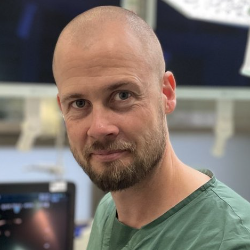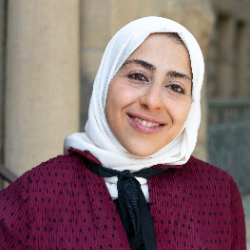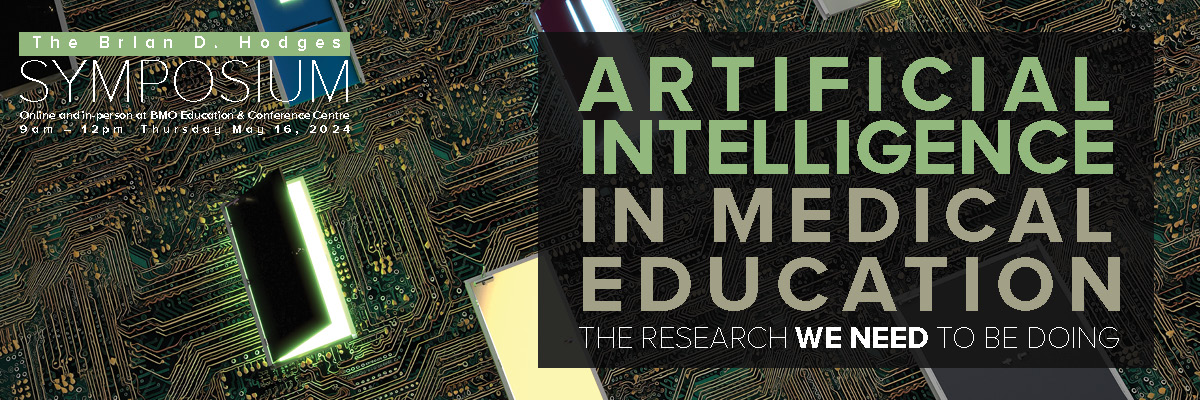Invited Guest Speakers

Martin Tolsgaard, PhD, DMSc
Professor, CAMES, Copenhagen University Hospital Rigshospitalet, and University of Copenhagen
Keynote Speaker
My work involves the use technologies, such as simulation or artificial intelligence (AI) to augment clinical performances. I did my PhD within the field of clinical learning and in my postdoc and doctoral dissertation I explored the use and cost of simulation technology for clinical skills training and assessment.
Over the past 5 years, I have been increasingly involved in how to use AI for skills learning and assessment. This has resulted in empirical and conceptual work on the use AI in medical education as well as practical guides on how to use AI for improving clinical skills and performances.

David Wiljer PhD
Scientist, The Wilson Centre; Professor, Departments of Psychiatry and IHMPE, University of Toronto; Executive Director, Education Technology Innovation, Digital, University Health Network
I am a Professor in the Department of Psychiatry and the Institute for Health Policy Management and Evaluation at the University of Toronto. I am also the Academic Director of CPD in the Temerty Faculty of Medicine, University of Toronto. Throughout my research career. I have focused on the intersection of technology and education, with a focus on digital innovation. My research has tackled emerging issues related to digital compassion, partnering with patients in health professions education, the advancement and leadership of continuing health professional education and the evolution of professional identity, and data-driven approaches to education and knowledge transfer in diverse health care settings. Over the last few years, my research program through my Digital Compassion Research Lab has been exploring the notion of digital compassion, an emerging field of study that investigates the intersection of building digital ecosystems for healthcare improvement, the delivery of compassionate care and the formation and evolution of health professional identity as it relates to digital health. Digital compassion utilizes a functional definition of compassion to explore the ways in which education and knowledge mobilization can mediate or regulate/dysregulate digital compassion and compassionate care. In addition, our lab has been exploring educational approaches to accelerating the appropriate use of data and AI applications for practice improvement.

Alaa Youssef
Postdoctoral Fellow, Department of Radiology, Stanford University School of Medicine
Panel Speaker
Dr. Youssef is a postdoctoral fellow in the Department of Radiology at Stanford University School of Medicine. She received her Doctor of Philosophy degree in Data Science and Population Health from the Institute of Medical Science, University of Toronto, Canada in 2021. She is a former Wilson Center Research Fellow. Her research addresses ethical considerations in AI development, aiming to promote responsible use of AI in healthcare. Using mixed-methods methodologies, she investigates the end-user experience with AI systems, identifying ethical and safety concerns related to integrating AI into clinical workflows. Dr. Youssef leads several AI educational programs and policy initiatives. She co-directs the Stanford AIMI High School Programs, preparing the next generation for careers that intersect AI and medicine. She also serves on several AI policy and education committees across the Stanford School of Medicine.
Date & Time
Thursday May 16, 2024
9am - 12pm EDT
*earlier arrival for onsite attendees
Event Location
Hybrid from BMO Education & Conference Centre
Last minute registrants will find the Zoom link in their confirmation email.
Registration
This is a free event
Program Information
Cheryl Ku
cheryl.ku@uhn.ca
Technical Assistance
Conference Services
conferences@uhn.ca

 Copyright© 2017 | MYConference Suite Registration | D.E. Systems | All Right Reserved.
Copyright© 2017 | MYConference Suite Registration | D.E. Systems | All Right Reserved.